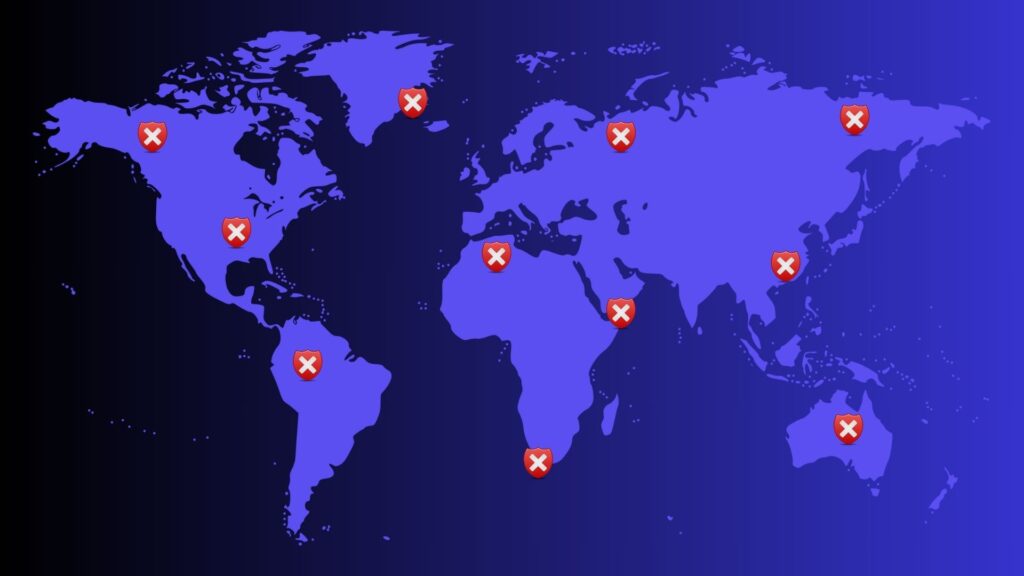Black Friday is here! It is a shopper’s paradise where you can find the amazing deals and discounts that make it near impossible to resist a spending spree. But there’s a dark side to the biggest shopping day of the year: cyber scams. With online shopping more popular than ever, cybercriminals have upped their game, using sophisticated tactics to steal your personal information and hard-earned cash.
But not to worry, we’ve got your back. In this article, we’ll look at the most common Black Friday online scams of 2024 and provide ten easy tips to help you stay safe while shopping online.
Why do scams increase on Black Friday?
Black Friday is the start if the shopping season and often contains some great deals. When we’re rushing to snag that 75% off deal, we can get a little careless and the scammers are well aware of this. Cybercriminals view Black Friday as a goldmine because of:
- Abnormally high traffic: Many retail websites experience a surge in visitors which makes it easier for fake websites to blend in and often impersonate legitimate websites.
- FOMO (Fear of Missing Out): The countdown timers and limited stock make people act with urgency which could lead to overlooking important security details.
- Our weakened defenses: Many shoppers use free public Wi-Fi when trying to get the best deals which could lead to our information being stolen, such as credit card details.
Let’s look at a few of the common scams that will probably be used for Black Friday.
5 Common Black Friday online scams to watch out for
1. Fake shopping websites
Fraudulent websites are created to mimic popular retail websites so perfectly that even frequent online shoppers can fall for them. These websites try to lure you in with unbelievable deals, but when you check out, you’re basically handing over your credit card details to cybercriminals instead.
What you should look out for:
- Always check the URL. Look for any spelling errors or extra characters within the name, e.g., amaz0n.com.
- Check for website’s padlock. Verify that the HTTPS padlock is enabled for the website. No padlock, no purchase.
- Research new websites. If it is a new website that you haven’t used before, rather check for any complaints or known scams. You can Google “[site name] + scam” to get more information.
2. Fake social media ads and influencer giveaways
Most of the social media platforms will have “exclusive Black Friday deals” and giveaways hosted by people pretending to be well-known influencers or brands. These platforms may not be able to remove all these scams, so it is important to be wary before providing your information.
What you should look out for:
- Sponsored posts with deals that seem too good to be true.
- Influencer accounts that only have a few followers and no verified badge.
- Anyone that requests payment or personal information before you can “claim” your prize.
3. Phishing, the old faithful
“Your order has been shipped” although you have not yet made a purchase, or a request to confirm your account information from an unfamiliar website. These email or text messages often appear to be from a legitimate company but contain malicious links or attachments that could steal your login credentials or install malware on your device.
What you should look out for:
- Check the link to view the URL before clicking. You can do this by hovering over the link to see the full link.
- If you are unsure, you can contact the retailer directly using their official communication channels to obtain confirmation.
- If the email or SMS seems suspicious, don’t respond directly to the sender.
4. Fake apps
It’s far easier to create an app today than it was a few years ago. Cybercriminals often create fake shopping apps to try to steal your data. These apps can be advertised on social media platforms or appear in unofficial app stores.
What you should do:
- Don’t download and install apps from unknown sources. Stick to downloading apps from trusted sources like the Google Play Store or Apple App Store.
- Perform a few quick checks based on user reviews – read the app reviews and ratings before installing on your device.
- Check the permission requirements before installing the app. If the app requires more information than the intended use, rather don’t install it.
5. Use free Wi-Fi with caution
Free Wi-Fi is available in most public places these days. Hackers and Cybercriminals can intercept the Wi-Fi connection and steal your data, including your passwords and credit card information.
What you should do:
- Do not use free Wi-Fi to perform sensitive transactions like online shopping.
- Use password-protected Wi-Fi whenever possible.
- Use a VPN to encrypt your connection.
Now that we know what the most common scams are, let’s look at the ten easy tips to help you shop online safely.
10-step checklist to stay safe when shopping online
Follow these easy steps to help keep you safe from these vexing Black Friday online scams:
- Only use trusted, secure websites – check for the padlock next to the website name.
- If a deal sounds too good to be true… you know that it probably is.
- Check the website URLs carefully for any spelling mistakes or different characters.
- Use strong and unique passwords for all your online shopping accounts.
- Enable multifactor authentication (MFA) for an additional layer of security on your accounts.
- Try to make purchases using a credit card instead of a debit card wherever possible. The credit card service offers better fraud protection than bank cards (virtual cards are even better).
- Always keep your devices updated with the latest security patches and updates.
- Phishing is and will be everywhere, don’t click on suspicious links or download suspicious attachments.
- If you need to use free Wi-Fi, use a VPN to complete your purchase so that your information is encrypted.
- Regularly monitor your bank account to check for any unauthorized transactions.
These steps can help you prevent a scam but cannot stop it completely. Unfortunately, there is always a risk that you may fall victim to a scam. The next section will outline what you should do when dealing with a scam.
What to do if you fall for a Black Friday online scam
All of us can slip up and become the victim of a scam. If you suspect that you may have been scammed, the important thing to remember is to stay calm and do the following:
- Act quickly: Contact your bank to report the unauthorized changes or transactions and possibly cancel your bank cards.
- Change your password: Update the passwords for all accounts that could be associated with the scam.
- Report the scam: Notify the company or platform where you encountered the scam.
- Monitor your accounts: Check that there aren’t any additional unauthorized transactions or updates.
And finally, let’s go shopping!
At the end of the day, remember to be vigilant and always act with caution. By following these easy tips, you can shop securely and with confidence. The best deals come with peace of mind.
So, enjoy your Black Friday shopping, and share these tips with your family and friends. Be secure!



